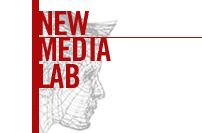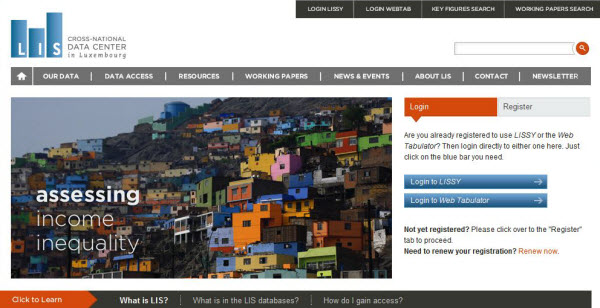Labs and Centers, Data Repositories, Data Mining
- GC Digital Scholarship Lab
- New Media Lab
- LIS Cross-National Data Center
- CUNY Data Service Repository
- Center For Urban Research Data Holdings
- Data Mining
- CUNY Mapping Service
Digital Scholarship Lab
 The GC Digital Scholarship Lab is a new research space at the Graduate Center, CUNY whose project-based work centers on the use of technology in research and teaching. Users focus particularly on creation of collaboratively produced, community-based, public-facing open-source software platforms for scholarly communication. Visit the Lab in room 7414 at the Graduate Center, CUNY or write to lab director Matthew K. Gold to learn more.
The GC Digital Scholarship Lab is a new research space at the Graduate Center, CUNY whose project-based work centers on the use of technology in research and teaching. Users focus particularly on creation of collaboratively produced, community-based, public-facing open-source software platforms for scholarly communication. Visit the Lab in room 7414 at the Graduate Center, CUNY or write to lab director Matthew K. Gold to learn more.
GC Maker Space
Launched in Fall 2016, the GC Maker Space lives in the GC Digital Scholarship Lab, Room 7414. The GC Maker Space runs on the premise that hands-on experiments lead to critical engagement with technologies, and has equipment available for experimentation and projects that involve physical computing, 3D printing, and audio production. In addition to semesterly Monday Maker Hours students, faculty, and staff to drop in and experiment, the GC Maker Space hosts workshops led by GC Digital Fellows.
New Media Lab
 Under the direction of Andrea Vasquez, the New Media Lab works with Graduate Center and CUNY faculty and doctoral students from a variety of academic disciplines to conceive and create groundbreaking multimedia projects based on student and faculty scholarly research. With ongoing support from CUNY, the New Media Lab has become a dynamic environment in which projects funded by the National Endowment for the Humanities, the Rockefeller Foundation, and other private and public sources demonstrate new approaches and methods of merging digital media, scholarship, and learning. Run under the auspices of the Center for Media and Learning / American Social History Project, NML researchers: work across academic disciplines to produce scholarly digital media projects; analyze Internet and other digital media usage in the educational, social, and commercial sectors; construct interactive environments that explore ways of visualizing the arts, humanities, and sciences; digitally archive and analyze a wide range of data; participate in public programs that address the critical intersection of knowledge and technology.
Under the direction of Andrea Vasquez, the New Media Lab works with Graduate Center and CUNY faculty and doctoral students from a variety of academic disciplines to conceive and create groundbreaking multimedia projects based on student and faculty scholarly research. With ongoing support from CUNY, the New Media Lab has become a dynamic environment in which projects funded by the National Endowment for the Humanities, the Rockefeller Foundation, and other private and public sources demonstrate new approaches and methods of merging digital media, scholarship, and learning. Run under the auspices of the Center for Media and Learning / American Social History Project, NML researchers: work across academic disciplines to produce scholarly digital media projects; analyze Internet and other digital media usage in the educational, social, and commercial sectors; construct interactive environments that explore ways of visualizing the arts, humanities, and sciences; digitally archive and analyze a wide range of data; participate in public programs that address the critical intersection of knowledge and technology.
Data Repositories
CUNY-managed data repositories archive national and international data to support research on neighborhood change, income disparity, population trends, and ethnicity.
LIS Cross-National Data Center
Located in Luxembourg, LIS is a data repository which houses the Luxembourg Income Study Database and the Luxembourg Wealth Study Database. These databases store international data from high- and middle-income countries. LIS’s mission is “to enable, facilitate, promote, and conduct cross-national comparative research on socio-economic outcomes and on the institutional factors that shape those outcomes.” CUNY Professor of Political Science and Sociology Dr. Janet Gornick is the director of both the LIS in Luxembourg and the LIS Center at The Graduate Center in New York. LIS, formerly known as the Luxembourg Income Study, is a non-profit micro-data archive and research institute that serves a global community of researchers, educators and policy makers. LIS acquires datasets with income, wealth, employment, and demographic data from a large number of countries, harmonizes them to enable cross-national comparisons, and makes them available for public use by providing registered users with remote access.
CUNY Data Service Repository
Directed by Dr. Joseph Pereira, the CUNY Data Service is an affiliate of the New York State Data Center that archives data sets from a variety of sources, including the U.S. Census Bureau. It provides “customized analysis … on a fee for service basis for academic researchers, public and nonprofit agencies, community organizations, the media, and business organizations.” Besides supporting research at CUNY and servicing a broad client base which includes the NYS Department of Labor, the Federal Reserve Bank of New York, the NY Daily News, Newsday, and the Roman Catholic Archdiocese of New York, CUNY Data Service conducts a wide range of projects: Profiles and basic trends – Latinos in the New York Metropolitan area; Judgements of seriousness of police misconduct; Fairness of Punishments study (National Science Foundation); Workforce analysis – changing distribution of occupations and industries in 28 counties of New York State.
Center for Urban Research Data Holdings
 The website of the Center for Urban Research provides access to dynamic maps, data sets, and research findings about New York City and other metropolitan centers. The Center organizes research on the critical issues that face New York and other large cities in the U.S. and abroad, collaborates with public agencies, nonprofit organizations, and other partners to help them understand how to respond to the challenges they face, and informs the media, opinion-shapers, and the public about urban research at The Graduate Center. The Current Data Holdings page, demonstrates the breadth of this data repository: demographic data; economic data; census geographies; administrative and political Districts; open spaces; schools and other community facilities; health care facilities; detailed land use data by tax parcel; transportation networks; building structures; and subsidized housing.
The website of the Center for Urban Research provides access to dynamic maps, data sets, and research findings about New York City and other metropolitan centers. The Center organizes research on the critical issues that face New York and other large cities in the U.S. and abroad, collaborates with public agencies, nonprofit organizations, and other partners to help them understand how to respond to the challenges they face, and informs the media, opinion-shapers, and the public about urban research at The Graduate Center. The Current Data Holdings page, demonstrates the breadth of this data repository: demographic data; economic data; census geographies; administrative and political Districts; open spaces; schools and other community facilities; health care facilities; detailed land use data by tax parcel; transportation networks; building structures; and subsidized housing.
Data Mining
Digital technologies gather and evaluate data, and discover relationships between variables. Initiatives at CUNY use data modeling, simulations, time lapse photography, and GPS mapping to automate data analysis.
Social Policy Simulation Center
Center for Advanced Study in Education
Data Mining Methods – Research Projects
CUNY Mapping Service
Part of the Center for Urban Research, the CUNY Mapping Service, directed by Steve Romalewski, “engages with foundations, government agencies, businesses, nonprofits, and other CUNY researchers to use spatial information and analysis techniques to develop and execute applied research projects.” Romalewski and his team of four build online applications that connect to powerful databases to create interactive maps.
Some examples of CUNY Mapping Service’s work include:
- Visualizing Demographic Change: NYC and other major cities
- plus detailed analysis of race/ethnicity changes in New York neighborhoods
- the Census 2010 Hard to Count nationwide mapping site;
- the Long Island Index interactive map.
CUNY Mapping Service is also actively engaged in furthering OASIS NYC partnership which aims to provide “the richest source of community maps for New York City – free and all in one place online. OASIS is guided by a collaborative partnership of almost 60 greening groups, educators, individuals, businesses, nonprofits, and public agencies who use online mapping technology to help sustain the city’s open spaces and visualize the nexus between community greening and broader urban planning issues.”





